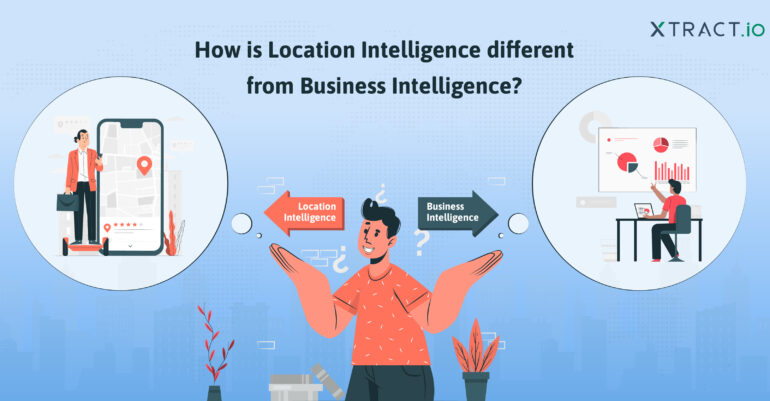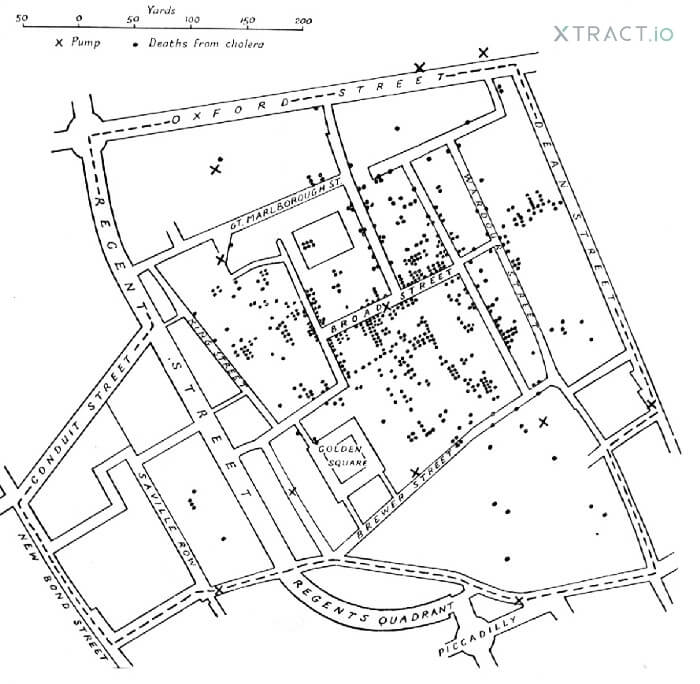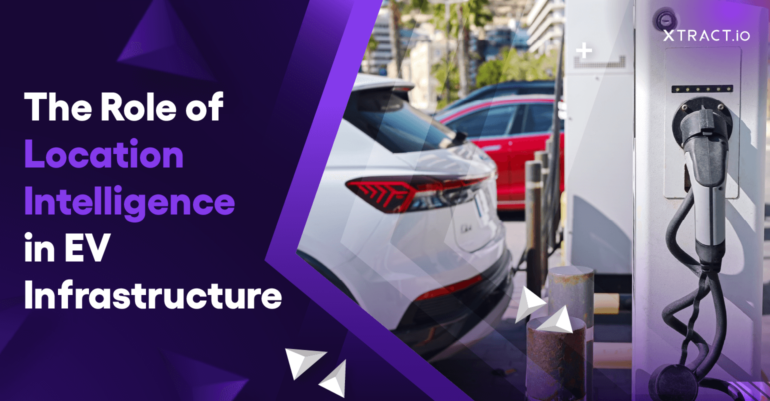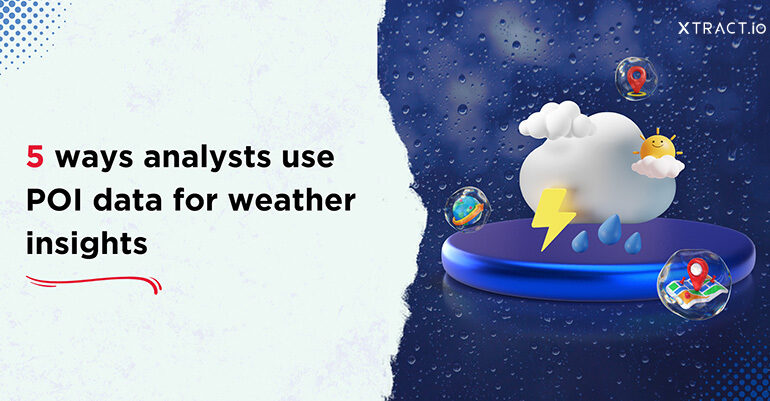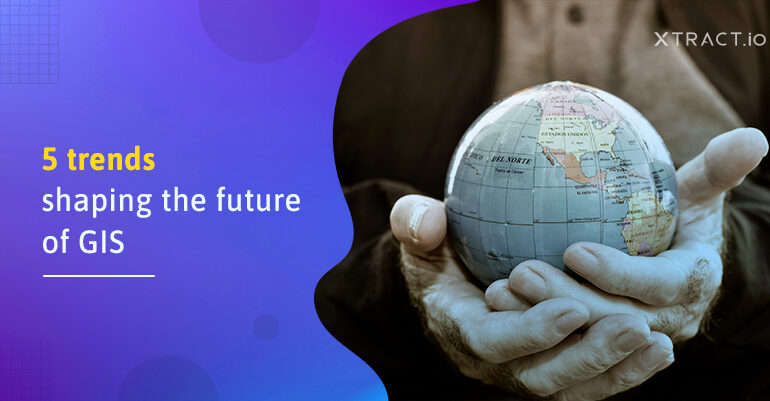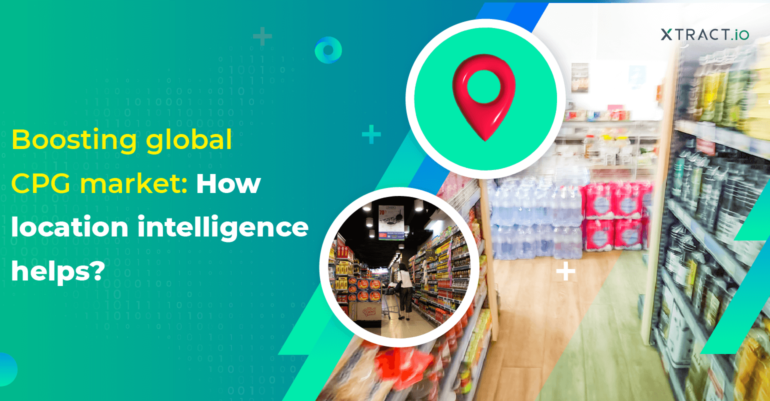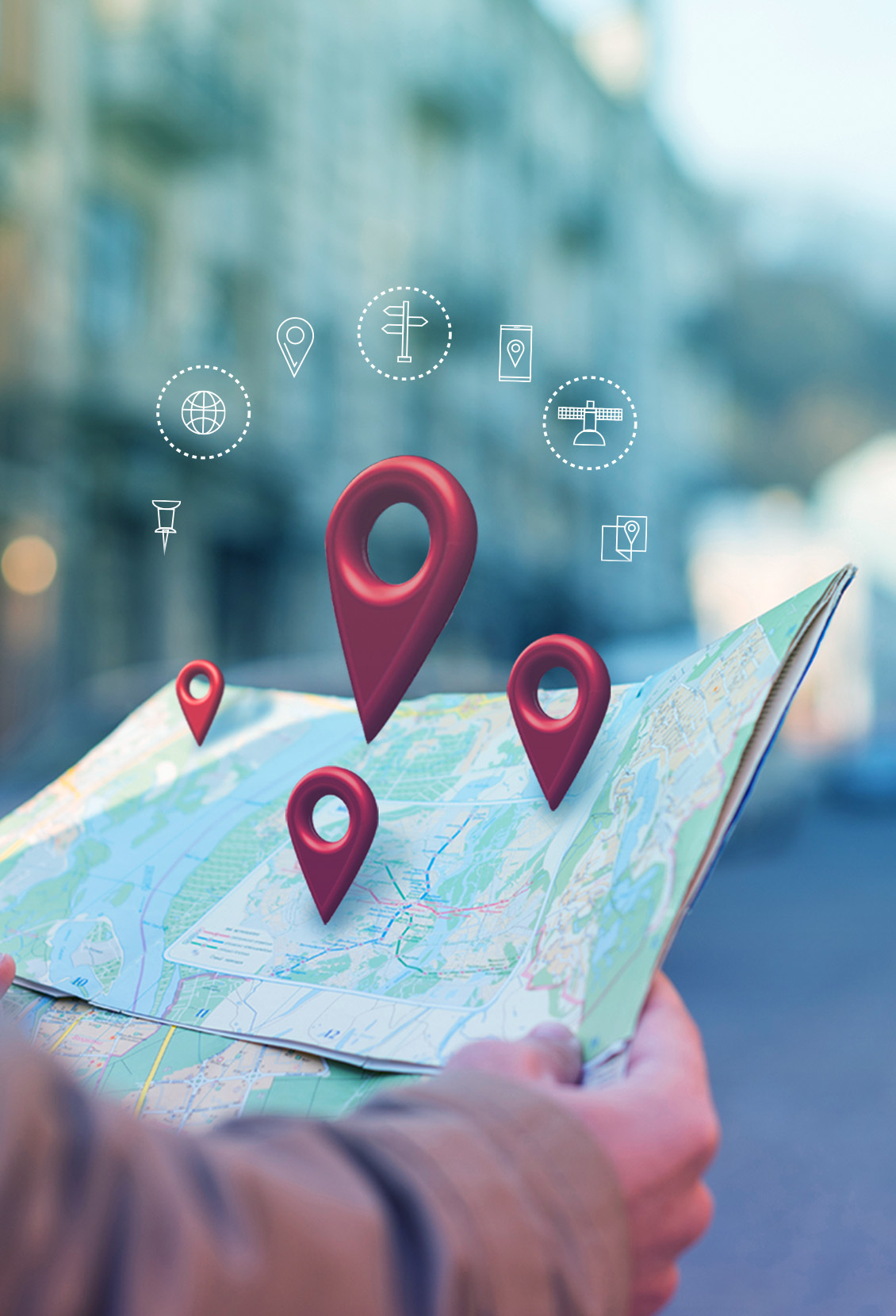“Technology has changed the world, is changing the world, and will continue to change the world.”
Location intelligence is not a new age coined term or technology. The case of maps being used for geospatial analysis was recorded in 1895 when John Snow from London created a map to identify and track the cause of the cholera outbreak. Through this map, the location of a specific water pump was traced where local residents would go to fetch water (marked as x, in the map given below). This water pump was the cause of the widespread epidemic and measures were immediately taken to avoid its spread. Snow and his team of scientists gained intelligence and insights from geolocated information. Thus, originated the term called “Location Intelligence”.
What is Business Intelligence (BI) and Location Intelligence (LI)?
The process of extracting, collecting, storing, analyzing, and deriving insights from raw data to make informed decisions is called Business Intelligence. In today’s data-driven world, if data is stored in silos, companies struggle to get the right data that help them to devise a successful business strategy. Therefore, business intelligence tools, technologies, and solutions have become a vital part of any business as it helps decision-makers to gain insights, understand factors that impact the profit and loss, and other key performance indicators (KPIs) such as customer behavior, price monitoring and analysis, and customer satisfaction through offline and online feedbacks.
According to MarketsandMarkets 2020 report, the global business intelligence market is expected to witness a positive growth of 7.6% CAGR and take a jump from $23.1 billion in 2020 to reach $33.3 billion by 2025. Over the last few years, BI has been adopted worldwide across various industries and segments – from leading companies to small start-ups to drive operations effectiveness, predict customer behavior and develop new business opportunities. As per analysis, over 46% of businesses use business intelligence tools in their business strategy to enhance operational efficiency and gain a competitive advantage.
BI helps in answering some of your key business questions
- Who is our target audience?
- Who are our customers and competitors?
- What are the trending products/technologies/tools in the market?
- Which customers are early adopters of our product?
- How can we retain and acquire new customers?
- When is the right time to launch a product/service in the market?
- How much will a specific marketing plan cost to the company?
The process of deriving insightful information from location data to answer geospatial-related questions is known as Location Intelligence. If BI answers “what, which, how” questions, location intelligence (LI) answers all the “where” or location-related questions. About 80% of the data has a geographical element associated with it. This type of data is called location data, which help businesses and government to make strategic decisions based on the demands and environment of the location. Location data are created from GPS systems, Internet-of-things (IoT), consumer behavior, and environmental factors that help us to identify trends in the market and gain actionable information.
The growing need and demand for location-based information to make accurate business decisions have increased the use of maps, location-based applications, GPS systems, spatial data, and analytical tools. According to a report from Research and Markets, the global market for location Intelligence estimated at $11.9 billion in the year 2020, is projected to reach $29.8 billion by 2027, growing at a CAGR of 14% over the analysis period 2020-2027.
LI helps in answering some of your key business questions
- Why did sales drop by 20% in this location?
- How did the weather condition in a particular location impact the business?
- To fix a buyable price of the market, identify the cost of living in this city?
- How did footfall increase by 10% in this location?
- How profitable was this location for a particular industry in the last 5 years?
- Is it appropriate to open a new store/hospital/ATM/charging station, etc. in this location?
- Should staff count be increased in this location due to the high foot traffic?
How adding the “where” element in analytics can enhance your business operations?
The future of location intelligence is going to transform the way in which businesses function. Many industries such as retail, healthcare, restaurants, automotive, logistic players, etc. bank on location information to provide a better customer experience and improve business performance. Find location data for these industries from Xtract.io, a leading location data provider.
Location data, when amalgamated with business data reveals the relationship of location towards people, market, events, infrastructure, facilities, transactions, assets, and many more. For example, a real estate agent fixes the price of a property based on a specific geographical location. Transportation companies like Uber, Ola, benefit from LI as it helps in determining the driver’s point, the exact pick-up and drop location to calculate the distance and time taken to travel. Similarly, location intelligence adds value in every industry and a few of the most prominent use cases are listed below.
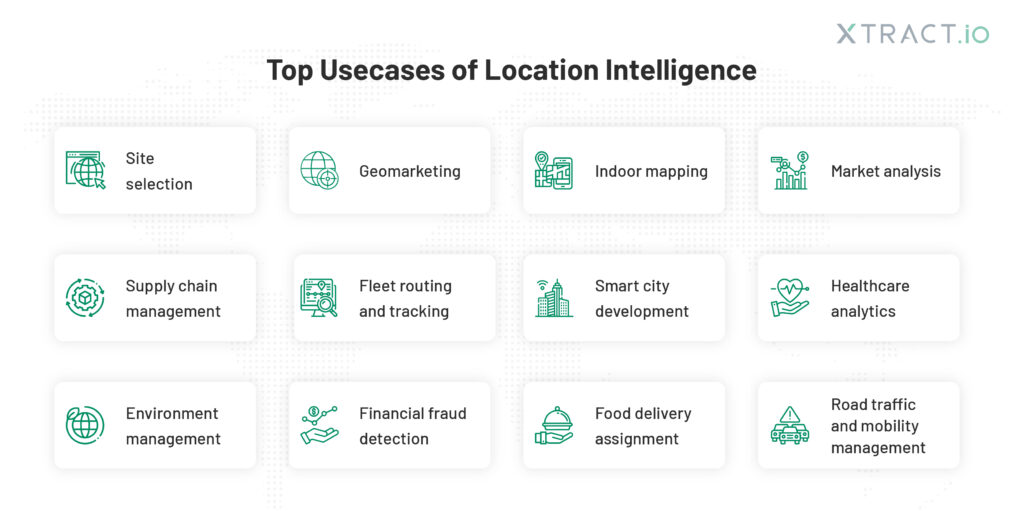
As per the Gartner report, about 30% of customer interactions will greatly be influenced by real-time location analysis, by 2022. Therefore, location intelligence shall be an integral part of every business operation – from marketing to supply chain to finance.
Conclusion
Location intelligence is a critical part of business intelligence. While BI focuses on time-related data, LI highlights the geographical data to unlock actionable information. 70% of the organizations consider location intelligence as a critical parameter to achieve business goals. It helps organizations in holistic planning, predicting, preparing, and problem-solving operational challenges. Therefore, the convergence of LI & BI, backed with power-packed information is the future of business. And we help you to take the next futuristic move in your business. Access Xtract.io location database across multiple industries and connect with our team to know more.


